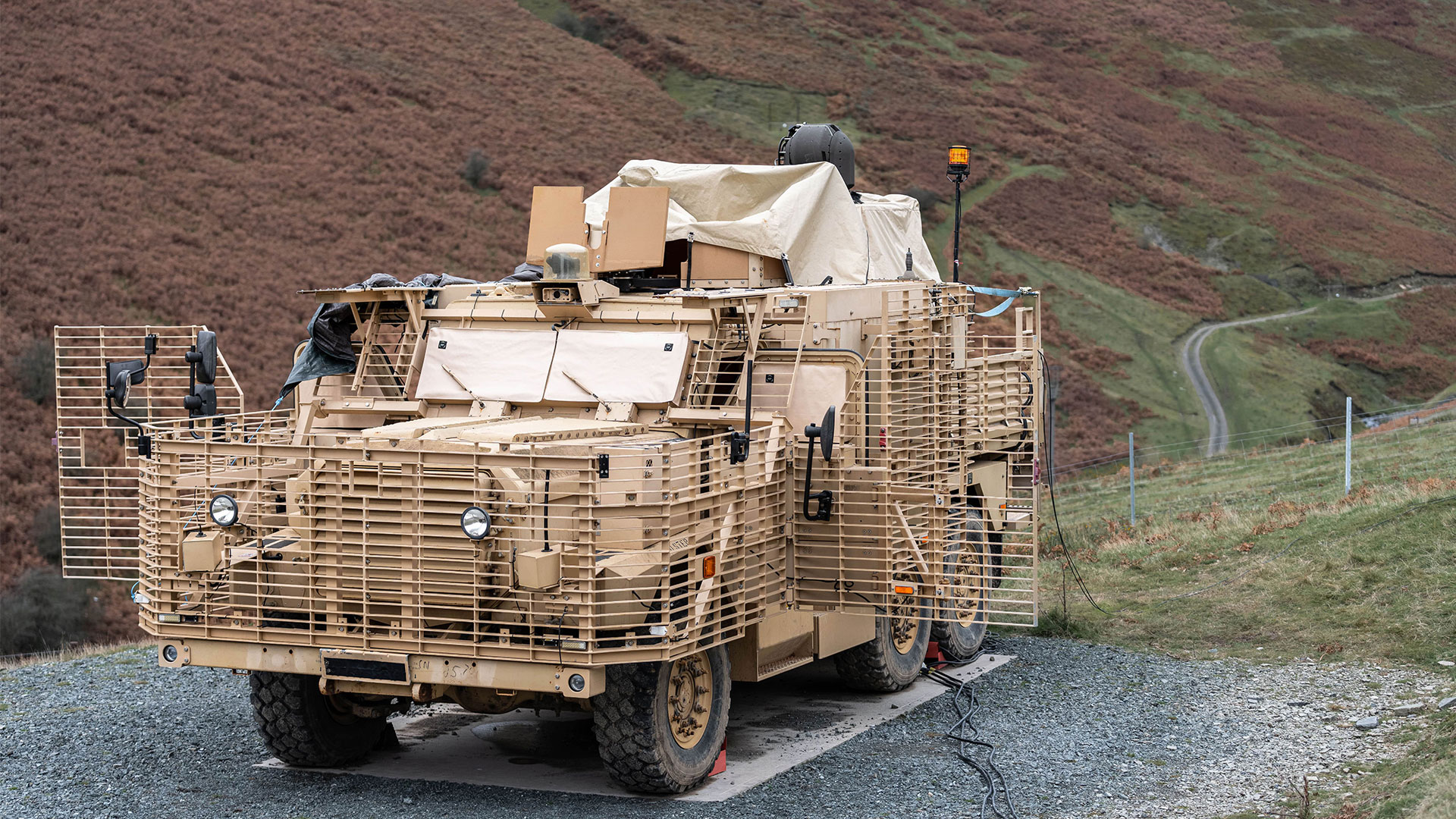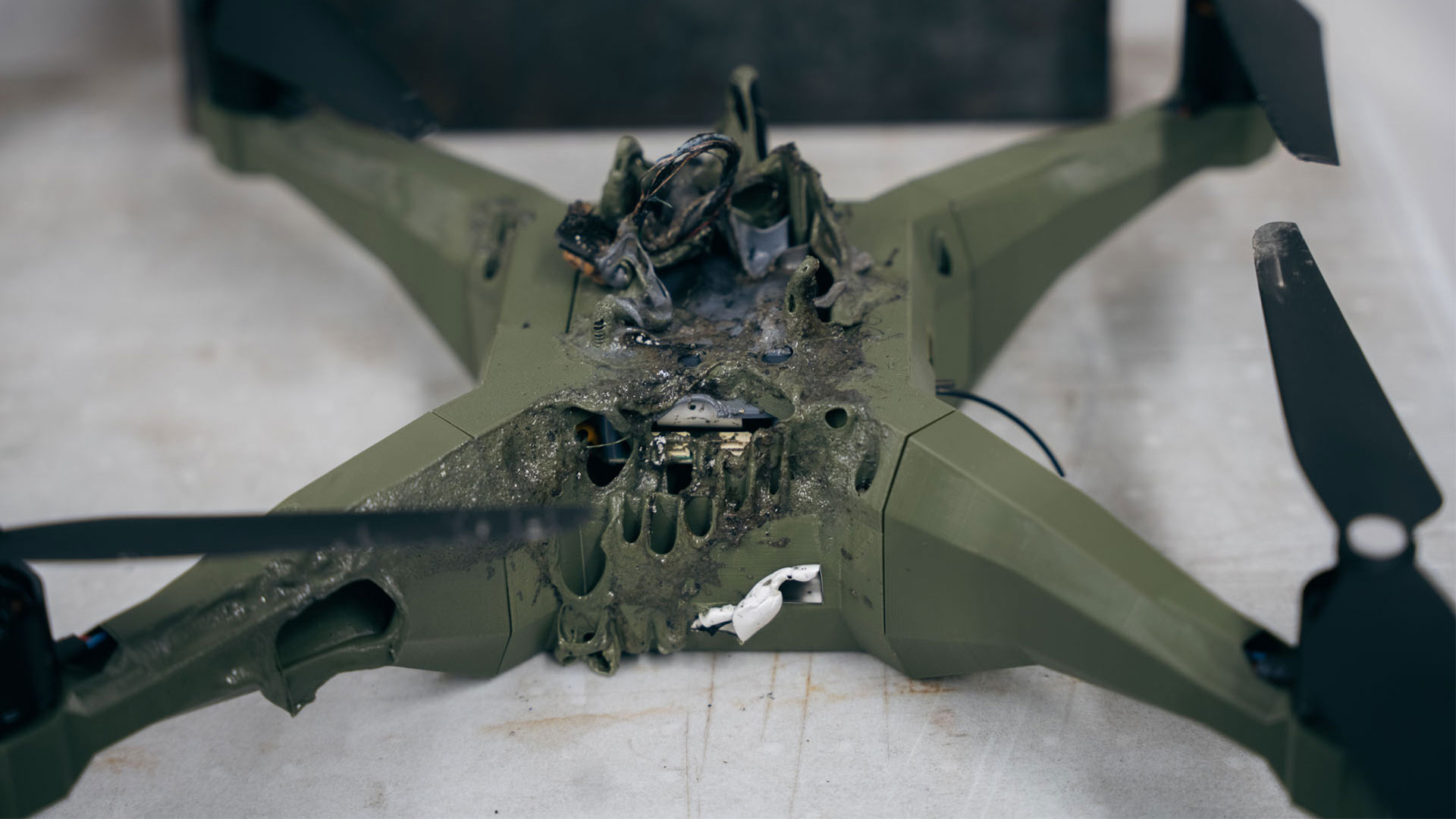
Field tests of the British Army's newest drone-destroying mobile laser weapon have reportedly enjoyed great success. The Wolfhound high-energy laser weapon system (HELWS) is an armored troop-carrying vehicle with an integrated laser, leveraging "advanced sensors and tracking systems" to target and knock out drones with surprising speed. Drones are an increasing threat in war zones, around airports, and in places like New Jersey, so the development of quick and capable anti-drone weapons is increasingly essential.
The laser-toting Wolfhound was tested recently at the Radnor Range in mid-Wales. Its operation relies on accurately concentrating a high-power laser on an in-flight drone until it malfunctions and drops from the sky. This is why the advanced sensors and tracking are essential, but from the video above it looks like skilled human operators play an important part, too.
According to the Ministry of Defence (MOD) press release, the merging of a Wolfhound-protected troop-carrying vehicle and HWLWS was completed by MOD technical departments in partnership with an industry consortium led by Raytheon UK.
"Every engagement we’ve done has removed a drone from the sky. While we’ve been testing a variety of distances, speeds, and altitudes, one thing has remained – how quick a drone can be taken out," enthused Warrant Officer Matthew Anderson, the trials manager for the British Army’s Mounted Close Combat Trials and Development Group. "It’s definitely a capability that could be added to the arsenal of weapons that we use on the battlefield."
An MOD exec added that the ability to deploy a mobile drone tracking and elimination system will deliver an operational advantage to the British Army. However, the system as demonstrated doesn't appear to be a finished combat-ready system, as yet. Instead, the Wolfhound HELWS is described as a "demonstrator," by the top brass, and characterized as a step towards a future capability.

With the Wolfhound HELWS's touted abilities, cost-effectiveness, and efficiency in dispatching errant drones we hope bean counters at the MOD can find the funds down the back of the sofa to protect British and allied troops from swarms of unmanned autonomous (or remotely controlled) threats.







